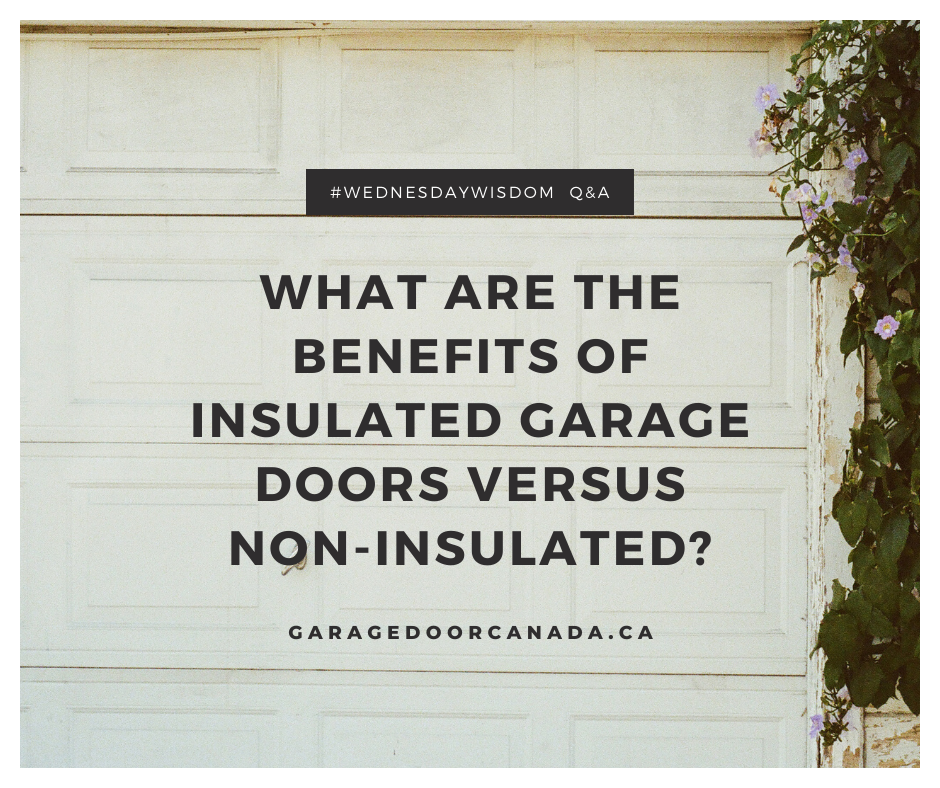What are the Benefits of Insulated Garage Doors vs Non-insulated?
Q: What are the benefits of insulated garage doors vs non-insulated?
A: The garage door on your home does more than just function as a door to keep this secure in your garage. While you garage door is the focal point of your home when viewed from the outside, it also can be a source of energy savings if insulated properly.
How are insulated garage doors different from non-insulated doors?
When it comes to selecting the right garage door, you do have the option to choose between insulated and non-insulated garage doors. Insulated garage doors are designed to help block the heat and cold from the outside. They help reduce heat and cold air loss transfer from around the door. This helps keep the indoor temperatures of your garage more consistent and comfortable year round.
With non-insulated doors, there’s just the steel between your garage and the outside - and steel is prone to heat and cold air transfer loss. If you have a non-insulated door, just touch it from inside the garage on a hot or cold day; the metal will feel warm or cool, just like the outdoor temperature.
What are some benefits of insulated garage doors?
Some of the benefits homeowners gain with insulated doors include:
Quieter door operation
Durable and stronger door that lasts longer
Reduced outside sounds
Reduced energy bills
Better protection for their vehicles and belongings stored in the garage
What is an R-value?
A door’s level of insulation is calculated using R-Value, which is used as a rating for insulation and its effectiveness at stopping heat loss transfer. Ideally, you want to choose a garage door with the highest R-value possible for the best heat loss transfer protection.
What types of insulation are available for garage doors?
There are generally two types of insulation used in garage doors: 1) polystyrene (AKA Styrofoam) and 2) polyurethane (spray foam). How each one functions and protects your garage varies; take a look below.
Benefits of Polystyrene (Styrofoam) Insulated Garage Doors
Can be added to non-insulated garage doors aftermarket
Provides improved insulation to the garage
Offers better energy efficiency over non-insulated doors
Drawbacks of Polystyrene (Styrofoam) Insulated Garage Doors
Not as energy efficient as polyurethane insulated doors
Leaves gaps without insulation in small crevices and other areas, like the door joints
Benefits of Polyurethane (Spray Foam) Garage Doors
Superior insulation over polystyrene insulation
Fills in all gaps, crevices and other areas
The foam bonds to the frame as it is injected in between the door for a solid, air tight seal
Highest level of sound reduction
Highest level of climate control
Higher R-values
Drawbacks of Polyurethane (Spray Foam) Garage Doors
Not an option for aftermarket non-insulated doors

